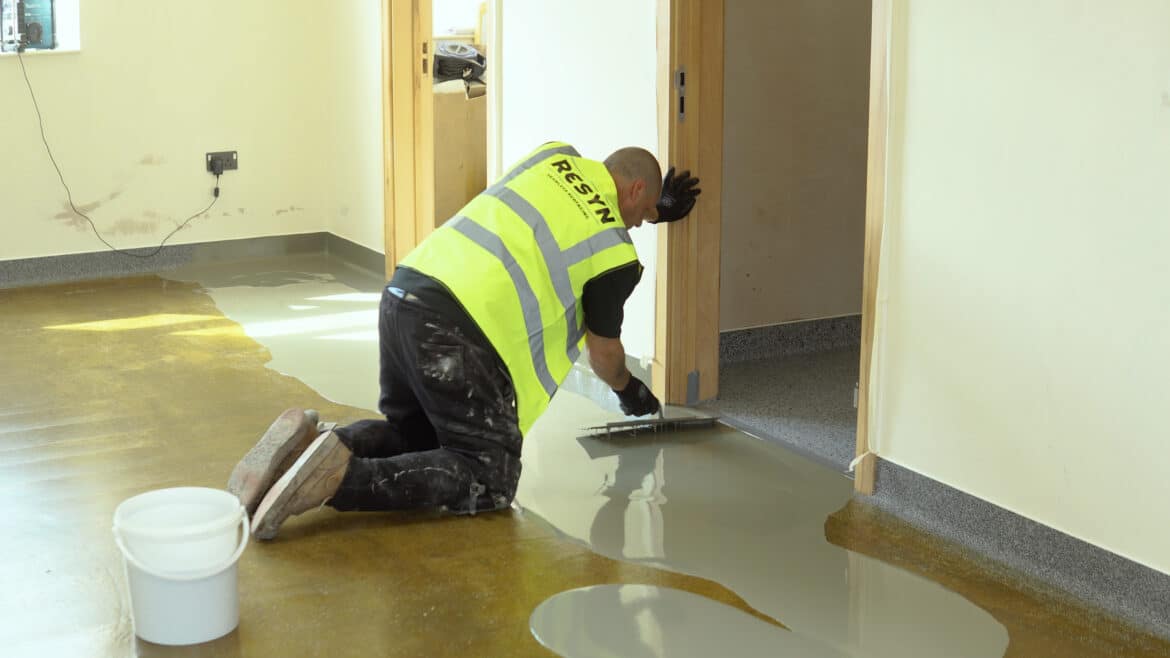One of the most important considerations before any flooring installation is determining whether your existing floor is suitable for a resin application. Resin flooring requires a strong, level substrate to ensure a secure bond and to provide longevity.
The substrate should be free of moisture, oil, grease, or any contaminants that could interfere with the bonding process. Undertaking the correct preparation to achieve this is key to the success of the floor. When our team conduct a comprehensive site survey, they will assess the condition of the substrate and offer advice on the best solution and protect your investment. Measures can be taken to strengthen the substrate prior to the installation of a resin system, should these be required.
- Concrete Floors: Concrete is a common substrate for resin flooring. Its strength and stability provide an excellent base for the resin to bond to, ensuring a durable and long-lasting finish. Most resin suppliers will advise that a minimal compressive and tensile strength is required prior to application. Before installation the concrete surface must be properly prepared. If there are cracks present within the concrete, our team can address these with a crack sealant and infill.
- Tiles: Tiles can also serve as a suitable substrate for resin flooring, especially in renovations where removing existing flooring is impractical and costly. Before applying resin over tiles our team ensure that they are securely bonded to the substrate and apply a scrape coat, with a reinforcing membrane. Any loose or debonded tiles are removed and infilled with a fast-curing repair mortar.
- Hardwood Marine Ply: Resin can be laid on top of Hardwood Marine Ply. This should be screwed at 150mm centres to securely fit to the ply to the substrate. At RESYN we always apply a scrape coat with a reinforcing membrane before the final resin system is installed.
- Screed: Screed is made up of a mixture of cement and aggregates (sand or gravel). It strengthens the floor and creates a smooth, level floor for resin to be poured onto. The screed needs to be fully dry before resin can be poured on top, which can typically take anywhere between 12-72 hours depending on the thickness.
- Existing Resin Floors: Resin can often be installed over an existing resin floor if the original layer is still in good condition, cracks or unlevel surfaces will reduce the longevity of the flooring. It is important to ascertain what type of resin has previously been installed due to the fact some resins do not provide an adequate bond to other resins.
- Stainless Steel: Resin can be applied to stainless steel providing the correct preparation is undertaken. The steel must be free of rust and corrosion, and strong enough to withhold the weight of the resin. Before applying the resin to the steel, a primer must be used to ensure that the floor is bonded to the substrate.
Need further assistance?
If you are still unsure what type of floor resin can be installed onto, RESYN can provide the advice and support you need to make an informed decision. As an experienced resin flooring contractor, we have extensive expertise in both commercial resin flooring and industrial resin flooring, helping you select the right system for your specific environment and performance requirements.
To further discuss choosing resin flooring solutions over alternatives for your next project, please contact us on 01778 343670 or use our contact us form.
To keep updated on our latest products and services follow us on LinkedIn.

